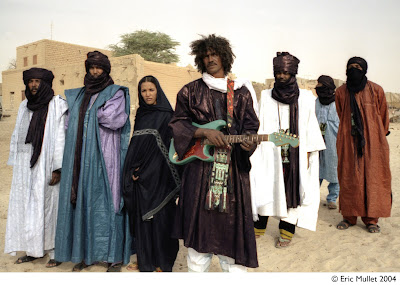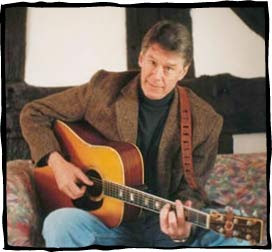We’re here to stay
Foremost Nigerian gay movement, the Alliance Rights, Nigeria (ARN) led by Dare Odumuye makes a bold strive to stay alive, as it celebrates five years of existence in a largely homophobic society, writes TONY IYARE
Not many in this clime would touch his pet project even with a long spoon. But undaunted, Dare Odumuye, who presides over Nigeria’s first publicly known gay movement, Alliance Rights Nigeria (ARN) as chief executive officer is forging ahead with his strange homily in a largely homophobic society.
Odumuye whose ARN got a Red Ribbon award recently from the Journalists Against Aids (JAAIDS) in Lagos for its effrontery to publicly raise its voice on this issue, narrates the story of his organisation set up to defend gay and lesbian rights five years ago
“I was living in Lagos. Within the gay and lesbian community, we were just having parties. After that, my friend and I sat down and said we needed to pursue things about sexual health and rights of gays and lesbians. Prior to that, a lot of people were sacked for being gay and lesbian. One was a manager, he was sacked and harassed. Another was a bank senior executive, he was also sacked. At social gatherings, area boys would come and harass people suspected of being gay or lesbian. Because of information we had about rights, we felt this was an integral part of the human being. Why should people be harassed for their sexual orientation? We now sat down and said this cannot continue. We had the same ideals and then the name Alliance Rights Nigeria came up”.
Continuing his moving story, Odumuye, a former administrative manager in Lead Assurance says the ARN which started as a membership based organisation on July 2, 1999 has now evolved into a service provider as an NGO.
“With the advent of democracy, we thought we had the constitutional leverage to operate. So we started exploring contacts and issues with friends. We started at my house at Alaka Estate in Surulere, Lagos. When the number increased, we now moved to now defunct Surulere Night Club around Shita area. From there we moved to the National Stadium where we had more space. That was how we started. There was also a place around Kuramo beach in Victoria Island where we used to meet. On an average night, we had 400 people who usually come and enjoy themselves. We started pursuing issues of sexual rights. We used to have lesbians and gays but right now we are focused more on issues that affect gays. The lesbians now have their own organisation”.
With seven “reputable people” on its board, Odumuye says the ARN is trying to engage the Nigerian society so that it can be less homophobic. Out of the four men and three women who make up the board, only two are said to be openly gay. The ARN also has a five-member expert advisory committee. “These are friends who identify with the aims and objectives of the organisation. They are the steering wheel of the organisation. They’ve been very instrumental to the modest achievement we’ve been able to do.”
On the objective of the foremost Nigerian gay movement whose work has touched more than 10.000 people across the country, the ARN boss says,
“The World Health Organisation WHO talks about health for all and you can’t do that if you exclude some part of the society. Our contribution is to ensure sexual and health rights for everybody. If we focus on just a part, there will be problems. We need to do a dynamic study of the needs of the gay/lesbian and bisexual and trans-gender issues”. Contrary to the belief of many here that gay and lesbian culture is foreign inspired, Odumuye, who also worked in a finance house in the 90s, would certainly stir the hornet nest with his treatise that this phenomenon predates colonialism in Nigeria. Hear him,
“Something that can be found in the language pattern of the people is part of that society. In Remo language, it is called gbowo. In Hausa, it is called dan daudu while the word langwa is used by the Ngwa in southeast Nigeria to derogatively abuse people who engage in homosexuality.”
According to the ARN chief executive officer, “It was actually colonialism that criminalised sodomy or sex that is against the order of nature.”.
“There’s a lot of misconception out there. When we talk of homosexuality, it is not just anal sex. Some people do not have anal sex. Some do masturbation, some do thy sex, some just comfort each other and stay together.”.
Odumuye argues that while Christianity and Islam frown at homosexuality, traditional African religion does not. According to him, in traditional Yoruba society when boys are approaching puberty, they are usually taken to the bush by older men who teach them how to have sex. Some of these young men grow out of it and become bisexual while some continue with the act of having sex with men. He also says some aides of the Oba who usually take care of the harem in the palace were eunuchs who had sexual urges but had no children.
The son of a former deputy registrar, University of Ibadan, Odumuye says he has the support of his highly educated family for his not too warm project.
”My people are very educated. My mother has a PhD. My father (late Femi Odumuye) who retired as a former deputy registrar, University of Ibadan was the first graduate from Ilishan Remo. My mother retired as a civil servant. She’s now into private business and also does some consultancy. My grand parents were also educated. They impacted education in every sphere”
Just a little over 35 years, Odumuye who describes himself as “single on both aspects”, says he gets a lot of pressure from the extended family members to get married but prefers to enjoy “my life as I am”.
“There are other people who are not homosexuals, who are older than I am and are not married. As long as you don’t go and steal and you do your work and you are getting public award and recognition, they feel you are doing some service to society.”
And the ARN which operates a small apartment office in the serene of Bodija, Ibadan, actually has its hands full of advocacy projects. One of them is a 12 month project called the Alliance Aids Initiative which is commencing from July 2004 to June 2005. This is an HIV/AIDS prevention education project for and with men who have sex with men (MSM) which is to be carried out in Ibadan metropolis.
The project which takes after the one held earlier in Senegal, South Africa, Kenya, Ghana and Sierra Leone, is being funded by Network in Ethics, Law, Human Rights HIV/AIDS Prevention, Education Care and Support (NELA) based in Ibadan in conjunction with International HIV/AIDS Alliance (IHAA) based in London. Says the ARN chieftain,
“it involves pair education. When we train the core group, they will go and train other people. We give them information of where to go for treatment. We want to capture this community and improve their sexual health condition. We hope we would have been able to reduce the sexual hazards among MSM.”
The mission of the ARN in line with this project is to distribute more condoms.
“We want a situation where they (MSM) will be safe and the general population will be safe. MSM are advised to use stronger condoms. Once you use condoms, that are not strong, there’s a problem. It depends on how they use it. They must use it right. They must have the skills because these men also have sex with women”.
The ARN which also has partnership with Hope World Wide based in Lagos and Family Health International envisages to kick start a very big project with three other organisations around the last quarter of the year. Estimated to cost over N20 million, this project will cover some selected sites in the country.
It has not been smooth sail for the ARN whose membership is said to cut across different regions of the country. Between 2000 and 2002, six members of the executive died of HIV/AIDS related cases. Odumuye, a 1988 BA English graduate of Ogun State University, Ago Iwoye says, “Membership cuts across the different ethnic groups. We had slightly more Igbo members. We’ve attended parties in Kano, Kaduna, Port Harcourt, Benin, Enugu, Owerri, Ijebu-ode and so on. There’s a preponderance of membership from the south east and south south. Unfortunately these areas are where the stigma is more”.
Not done with his gospel which many would prefer to see as heresy, Odumuye says the prevailing stigma on homosexuality in Nigerian society is misplaced because sex is a universal language of the human being.
“The release is there and the joining of the physical body, the passion that is aroused. It also plays on emotion. It brings down tension. It’s about the highest expression of the attraction to one another. It is used as a form of covenant, contract and procreation in some instance. MSM comes down to the same issue. All the passion and emotion that goes on in heterogeneous sex is also their in MSM. It is more emotional, and passionate. It is possible to have multiple partners without any sexual act. They just have more time together over drink in what they call serial monogamy. They do help each other and so on.”
Read more...






















